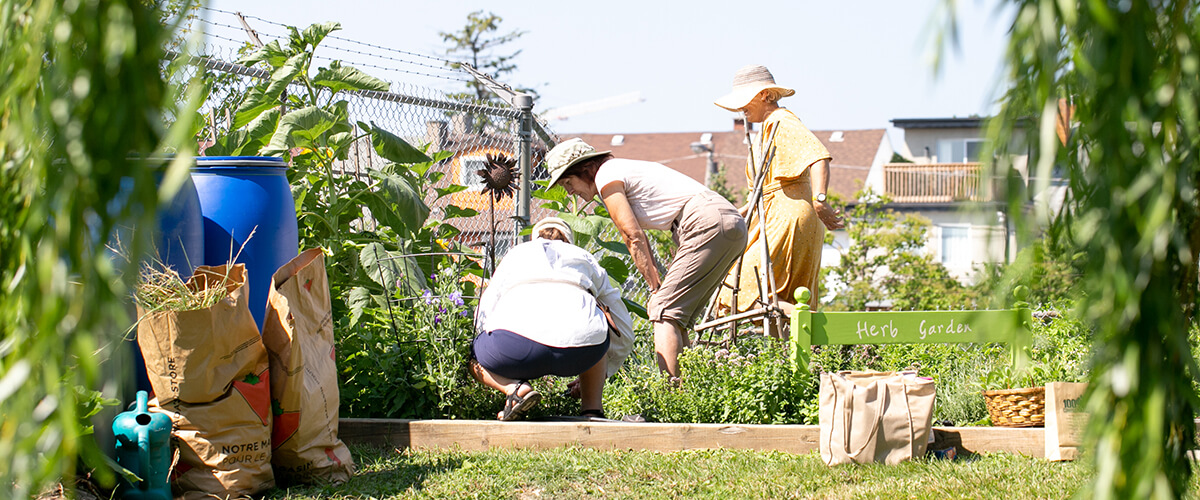
How often do you see unused land in your neighborhood? Have you ever thought that these spaces can be utilized in a better way?
Gardening is political. Gardens of flowers, plants, and organic produce have become an attribute of high income. South Etobicoke challenges this paradigm with their Gardens Pod Project, where local environmental groups partner with neighborhood residents to grow fresh vegetables and fruits in the community. Daily Bread Food Bank hosts one of these garden pods on site.
Produce from the pods is donated to local food banks and distributed to neighbours and community members. Participants also learn together by sharing their experiences and knowledge about how to grow fresh fruits and veggies, and how best to cook them.
The Project transforms unused green spaces near administrative buildings, schools, residential buildings, and other facilities into places to grow vegetables, fruits, and flowers. Gardens are planned and designed by professional landscape designers, community workers, and students and professors at Humber College.
Planter beds are installed to create small gardens of lettuce, tomatoes, savoy cabbage, zucchinis, bell peppers, mint, and many other nutritious plants. Eye-catching green terraces animate the neighbourhood’s look, making it more welcoming, comfortable, and people-oriented.
“Thanks to our beautiful partnerships with organizations like Daily Bread that donate the use of the land, we have gardens run by the community, for the community,” says Monika Meulman, social media director of the Lakeshore Environmental Gardening Society (LEGS). “Sustainability and supporting our neighbours is at the heart of what we do, and what better way to do that than by providing our community with access to fresh fruits and vegetables.”
This amazing activity is upheld and maintained by the collaboration of grassroots community agencies: LEGS, the Gardens Project and Garden Council, LAMP Community Health Centre, and Humber College. Daily Bread has hosted a community garden for several years. We are happy to collaborate in all possible ways to eliminate hunger and reduce poverty.
This project shifts people’s understanding of how food moves from garden to plate. It has the potential to fight climate change by reducing transportation-related emissions of fossil fuels. Providing an environment where people can grow their own food and educating them about it is a step toward increasing resiliency to hunger and making our communities more food sufficient and environmentally sustainable. The Gardening Pod Project is a way to solve food insecurity in the city through cooperation, engagement, and education.
“We not only grow plants, we cultivate friendships,” Meulman says. “Everyone is welcome to participate, regardless of how green your thumb is! After all, our motto is ‘growing our community, one plant at a time.’”
Want to ensure individuals and families in your community have access to fresh fruit and vegetables? Visit www.dailybread.ca to donate today.